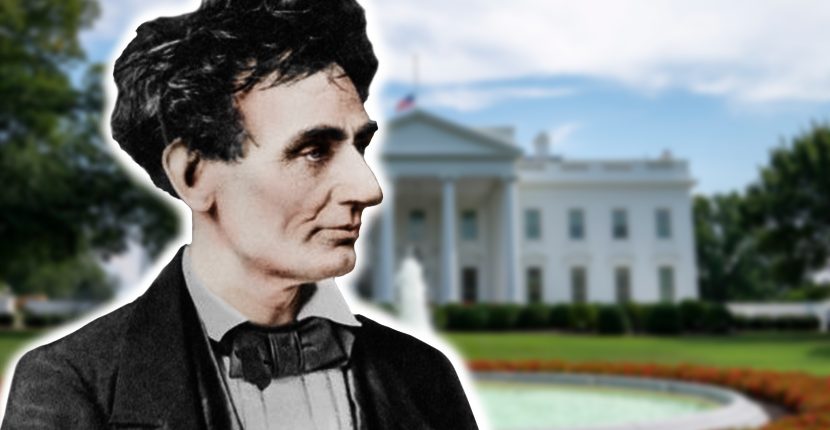Can you imagine President Abraham Lincoln without his iconic beard? Facial hair all but defines his famous face—stamped on millions of pennies and in the memories of millions of visitors to the Lincoln Memorial in Washington, D.C. But in fact, nearly the whole time he was criss-crossing the country in 1860 in his bid for the highest political office in the still United States, Lincoln was clean-shaven. The impetus for his makeover was a letter from an 11-year-old girl.
Lincoln, who described himself as a “prairie lawyer” in Springfield, Illinois, had served as a single-term representative, where he drafted an anti-slavery bill that was ultimately defeated. He ran for Senate in 1858, and though he lost that election, his vigorous campaigning style gained him national attention.
In February 1860, Lincoln gave a famous speech at New York City’s Cooper Union decrying slavery and insisting on the moral obligation of opposing human bondage. While the audience was impressed with his obvious intelligence and the speech brought him into contention for the Republican presidential nomination, some observers worried that his manner was too awkward and even called him “ugly.”
Honest Abe suffered no delusions about his appearance. “If any personal description of me is thought desirable, it may be said, I am, in height, six feet, four inches, nearly; lean in flesh, weighing, on an average, one hundred and eighty pounds; dark complexion, with coarse black hair, and grey eyes–no other marks or brands recollected,” he wrote to Joseph J. Lewis for an article published in the Chester County [Pennsylvania] Times, in February 1860.
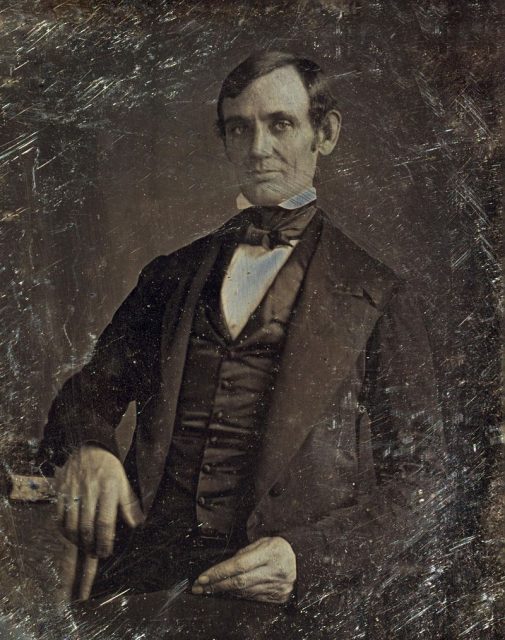
As it is today, Lincoln’s clean-shaven face was a professional status symbol. In the 1800s it was much more difficult for a man to maintain a smooth face and much easier for frontiersmen to let their beards grow. So much so that by the mid-1850s, a counter-trend anti-establishment “beard movement” was sweeping the nation, according to the New York Times. Growing a beard was seen as a radical, revolutionary and maybe even dangerous statement.
In 1857, a journalist strolling the streets of Boston noted that nearly two-thirds of the men sported full bushy beards, according to the Times, and that only a few men were “of the old school, smooth shaven, with the exception of slight tufted promontories jutting down from either ear, as if designed as a compromise measure between the good old doctrine and modern radicalism.”
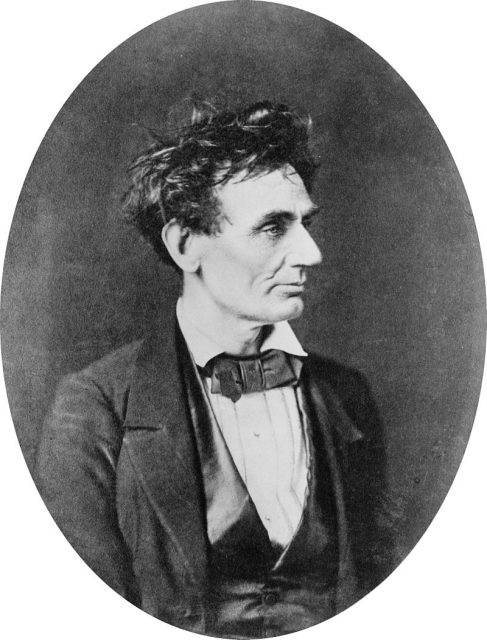
When the moderate Lincoln won the Republican nomination on a third ballot in May 1860, campaign propagandists sought to transform the lanky intellectual lawyer into a more informal roll-up-the-shirtsleeves, get-things-done, can-do man.
A few weeks before the November 1860 election in upstate New York, a father returned home from a state fair brought his 11-year-old daughter a portrait of two men running for political office: Abraham Lincoln and his vice-presidential mate, Hannibal Hamlin. Apparently, young Grace Bedell was an ardent supporter but was so appalled by Lincoln’s careworn visage that she decided to send him some sartorial advice.
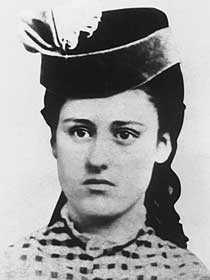
In a letter dated October 15, 1860, Grace Bedell wrote: “I have got four brothers and part of them will vote for you any way, and if you will let your whiskers grow I will try and get the rest of them to vote for you,” Grace wrote to Lincoln. “You would look a great deal better for your face is so thin. All the ladies like whiskers and they would tease their husband’s to vote for you and then you would be President.”
Of course, women could not vote in those days, and 11-year-olds still can’t vote today. But Grace went on to say, “If I was a man, I would vote for you too, but I will try and get everyone to vote for you that I can.”
The presidential nominee not only read the letter, he responded! He regretted that he had no daughters himself, only three sons. “As to the whiskers,” Lincoln wrote, “having never worn any, do you not think people would call it a piece of silly affection if I were to begin it now?”
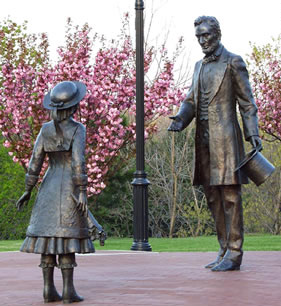
Soon Lincoln quit shaving. He won the four-way contest on November 6, 1860. His train route to his inauguration across the States was dangerous; his security detail, headed by Allan Pinkerton, uncovered assassination plots. Lincoln arrived in Washington, D.C., in disguise.
Despite the dangers, Lincoln made a point of stopping his train in Westfield, New York, in February 1861, to meet one very important person: Grace Bedell. She later recalled that Lincoln said, “Gracie, look at my whiskers. I have been growing them for you.”
A statue of the remarkable meeting stands in Westfield today.
